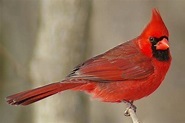Surprised by Joy
On his death, Louise Penny dedicated a bench to her late husband with the inscription “Surprised by Joy,” a reference to the C. S. Lewis autobiography  and a phrase she has written elsewhere about finding personal meaning in. I’ve been thinking about the nature of joy this year, as most of the outer world seems determined to suck all of the joy out of our lives. I’m not about to enumerate the list of possible things that can squeeze the pleasure out of daily life—in any event, you will have your own list—but just what the hell does it mean to be joyful any more?
and a phrase she has written elsewhere about finding personal meaning in. I’ve been thinking about the nature of joy this year, as most of the outer world seems determined to suck all of the joy out of our lives. I’m not about to enumerate the list of possible things that can squeeze the pleasure out of daily life—in any event, you will have your own list—but just what the hell does it mean to be joyful any more?
Writers make their own joy. If you follow our public personas—the social media, events—you’ll see the curtain of introverted extroversion we pull over what we’re doing. But few of the writers I know are joyous at the prospect of having to talk about their work, especially work that they finished months or years ago, and pretending all along they knew what they were doing. Our joy is in the work, the doing.
I think of joy as an ephemeral feeling, not a steady state you can aspire to. You can make yourself available to it, put yourself in a place to receive it, but I’m not convinced it’s something you can generate. The joyous times I remember most clearly were when I was surprised by the feeling: packing my truck to move back north from Virginia in 1984, asking Anne to marry me, catching my  first steelhead.
first steelhead.
So if we are always to be surprised by joy, how can we prepare for that?
One of the benefits of maturing, as we in our eighth decade like to speak of it, is a general and pervasive slowing down. The body slows down, the mind is less elastic, and you often have to descend to the seventh level of your word basement to find the bon mot you had only yesterday. Perversely, the fact that I have less time left to live than I already have lived compels me to slow down, to appreciate the  cardinal’s red at the feeder, the petrichor after a thundershower, the hope in planting garlic and daffodils I won’t see until spring.
cardinal’s red at the feeder, the petrichor after a thundershower, the hope in planting garlic and daffodils I won’t see until spring.
If you cannot manufacture joy, you can create the circumstances in which it can flourish, like intuition, like creativity. Writers know how hard it is to work when you’re worried about money or family or any of the thousand other things our days throw at us. To write well, you carve out space and time, solitude (if that’s your thing), and open yourself to the possibilities. You create the opportunity for your work to thrive.
I’m seeing the possibility of joy in the same way. The only rules seem to be: slow down, breathe in, take care. And allow yourself to be surprised.
Lea Wait's Blog
- Lea Wait's profile
- 506 followers



